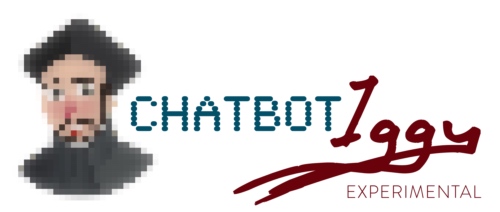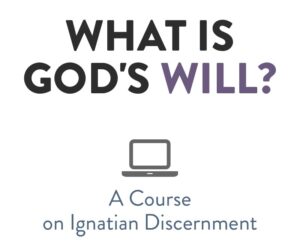After praying with St. Ignatius’ Suscipe prayer of surrender about a thousand times I finally noticed I had been inattentive to one particular word: understanding.
Take, Lord, and receive all my liberty,
my memory, my understanding
and my entire will,
All I have and call my own.
You have given all to me.
To you, Lord, I return it.
Everything is yours; do with it what you will.
Give me only your love and your grace.
That is enough for me.
This is a prayer of surrender, of course. After a life of vanity and egoism, Ignatius knew that to truly be in relationship with God one had to strip away all the things that drive the ego: liberty, memory, understanding, and will. These things were not inherently bad. After all, Ignatius acknowledges them in the prayer as gifts from God. But he also knew that the gifts of free will and knowledge and intellect have a way of being used by the ego for self-interest, self-protection. As an Eight on the Enneagram, when I am in an unhealthy place, I move toward the headiness of the Five; I can use knowledge and intellect as a defence. I can become argumentative and try to prove others wrong with the knowledge or “expertise” I have. Here I’m protecting my own position or ideology at the cost of the other. This is easy to do in religious circles when one has studied theology or become an “expert” on Christian tradition. We also see this in politics all the time. I’ve taken a gift and used it for my own egoic purposes, rather than for God’s purposes. And that’s what Ignatius’ prayer points out.
 The Danger of Certainty
The Danger of Certainty
Someone once pointed out to me that theology is all made up. It is in the sense that theology is simply humans’ attempts to understand God. It may be informed by scripture and tradition or divinely inspired, but at the end of the day it’s still finite human beings trying to make sense of something infinite and eternal. We’re always going to come up short. This is why heated (and often divisive) theological or doctrinal debates tend to go nowhere. Ignatius had his own encounters with the Inquisition as he went around discussing theological things without a theological education. God forbid! As the clerics of the Inquisition shouted to Ignatius in the new children’s book Audacious Ignatius, “Without our control, all will plunge into doubt! And you’re not a priest! You’ve got no clerical clout!” Knowledge or proclaimed certainty often divides rather than unifies.
“When we presume we know fully, we can be very arrogant and goal-oriented,” says Richard Rohr. “When we know we don’t know fully, we are much more concerned about practical, loving behavior. Those who know God are humble about their knowledge of God; those who don’t really know God, often speak in platitudes and certainties (about which they are not really certain).”
Partial Knowing
The 14th century writing The Cloud of Unknowing reminds us, “Through God’s grace, our minds can explore, understand, and reflect on creation and even on God’s own works, but we can’t think our way to God.” And St Paul in his First Letter to the Corinthians says, “For we know partially and we prophesy partially, but when the perfect comes, the partial will pass away” (1 Cor 13:9-10, NAB). Partial knowing is so hard. Children naturally ask questions and want to know the why for everything. Adults, too! Knowledge can give us a sense of order and absolute truth. But Ignatius’ prayer calls us to let go of that need for perfect understanding. The only things truly needed for life is God’s love and grace. As the poet Rilke writes, “Be patient toward all that is unsolved in your heart and try to love the questions themselves…” Or as Chardin writes in his prayer “Patient Trust“, “We are impatient of being on the way to something unknown, something new.” We could go on quoting for quite a while!
 Throughout our life experience, scripture reading, theological study, prayer, and conversation, we get glimpses of God. God is indeed Truth, but we cannot know fully, nor should we. We’re in a space of partial knowing. This is where growth occurs, in faith and friendship with God. In a recent episode of the FOX sci-fi dramady, The Orville, one of the female characters, Claire, goes on a date with the ship’s robot, Isaac. Beforehand, Isaac downloaded the entire personnel file of his date, including all her history, interests, likes, and dislikes. At dinner Claire finds there is no “getting to know you”; Isaac already knows everything about her. He says that this is for the sake of efficiency. Mystery gone, date over. Imagine if we came into this world knowing everything about God. It wouldn’t be much of a journey, would it?
Throughout our life experience, scripture reading, theological study, prayer, and conversation, we get glimpses of God. God is indeed Truth, but we cannot know fully, nor should we. We’re in a space of partial knowing. This is where growth occurs, in faith and friendship with God. In a recent episode of the FOX sci-fi dramady, The Orville, one of the female characters, Claire, goes on a date with the ship’s robot, Isaac. Beforehand, Isaac downloaded the entire personnel file of his date, including all her history, interests, likes, and dislikes. At dinner Claire finds there is no “getting to know you”; Isaac already knows everything about her. He says that this is for the sake of efficiency. Mystery gone, date over. Imagine if we came into this world knowing everything about God. It wouldn’t be much of a journey, would it?
Ignatius favours unknowing, stripping away of the false requirement to understand all, in the hope to journey more whole-heartedly into God’s love and grace. That is enough.
What knowledge do you find yourself clinging to? Does it build up the ego and create division? How can you see understanding as gift, while at the same time seeing unknowing as gift?
Related posts:
Listen to the podcast version of this post…









Hi Andy, thank you for this! It touched on something that was keeping me awake last night. God has a way of sending messages that doesn’t cease to amaze me. May God bless you and your wonderful work!
Marie🙏
This is a wonderful reflection, Andy. I recently read Pete Enns book, The Sin of Certainty, and it has made me realize how I can make a golden calf out of what I think I know. And all that certainty so that I might feel “secure” in my knowing. Shaky ground indeed!
Thank you for this reflection! Going to spend sometime with what the poet Rilke writes, “Be patient toward all that is unsolved in your heart and try to love the questions themselves…”
Something I needed today.
Blessings, Andy